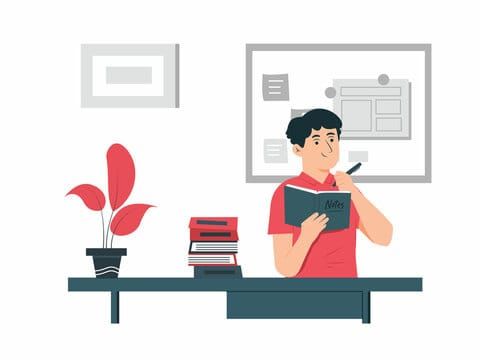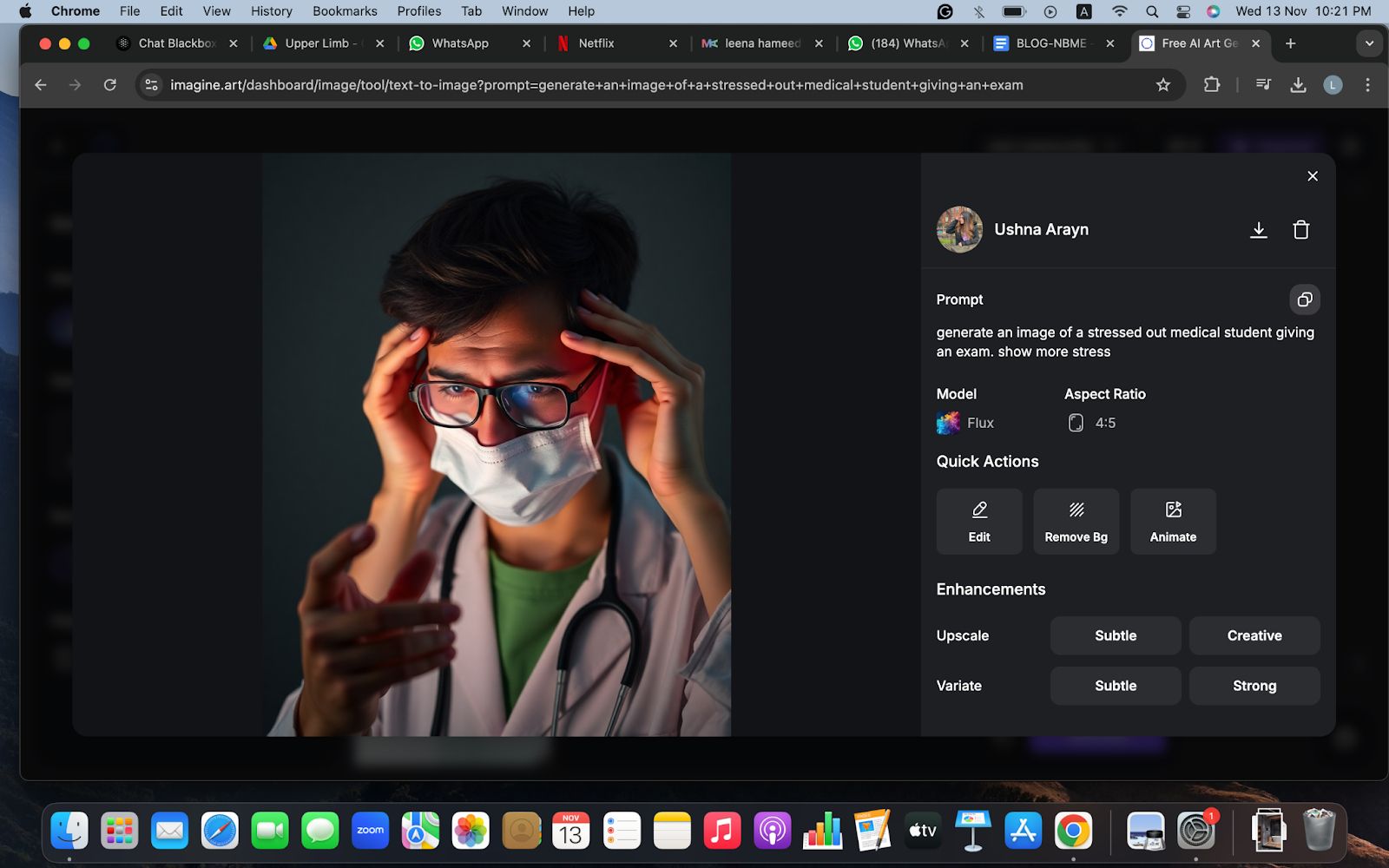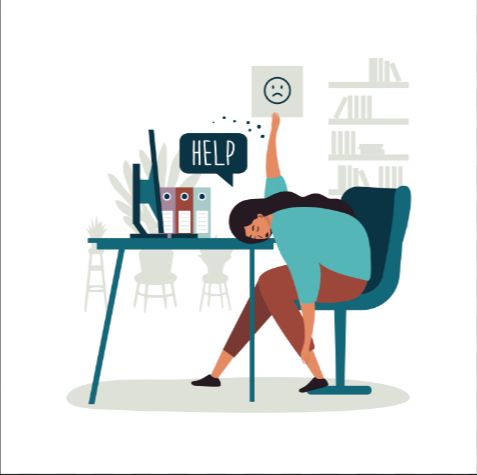

Eshal Irfan
8th January 2024 · 12 min read


Venturing on a journey as a science major is like stepping into the shoes of a scientific detective. Science enfolds a wide range of subjects, and sometimes, particular zones can be very hard to study or seem dull due to their complexity or absence of appeal. But we chose it because it's a compelling journey loaded with chances to unveil the mysteries of the natural world. Whether you're passionate about unlocking the secrets of DNA, keen to dig into the mysteries of the universe, or merely curious about why your toast often tumbles butter-side down, the domain of science is like a treasure trunk waiting to be opened.
When you declare yourself a science major, it's like the town crier announcing, "Prepare for endless toil". But hey, you don't need to turn into a caffeine-fueled zombie who avoids friends and family. No, there's no need for you to become best buddies with the midnight oil.
What you do need is to be the clever fox of the study world, not the overworked donkey. Being a science major doesn't mean you have to go full-on mad scientist, performing experiments in the dead of twilight while gulping gallons of coffee. Science can be your playground for innovative problem-solving. Ditch the all-nighters and coffee IVs and opt for a smarter, more efficient strategy for your studies.
Science is about probing, locating, and understanding the world around us. It's like being an intellectual detective, cracking puzzles and locating the secrets of the universe. So, put on your illustrative Sherlock Holmes hat and get prepared for some cerebral adventures because following are some of the most effective study methods that are bound to yield positive results for you.

Probably, one of the most suitable ways to start utilising, higher-order thinking for your recovery methods.
Write the Topic: Begin by writing the topic or concept at the top of your paper.
Illustrate in Your Phrases: Explain the topic as if you are teaching it to a fifth grader.
Review and Correct: Review mistakes or unclear points, then confer your notes or lessons for corrections.
Prime yourself before classes by chunking the material and identifying connections between groups, along with taking a pre-test. You won’t get every aspect of this initial structure correct, but that is more than okay. Priming before your lessons is meant for you to initiate thinking about how all the concepts link so that you can more effectively encode the details during class + retrieve the information after. This should take no longer than 25 minutes.
Examine upcoming homework, online modules, textbook practices, etc. To pinpoint a few problems to test yourself on before class. You will be amazed at how many of these questions you can get correct if you have deeply comprehended the previous concepts.
Of course, you won’t get every question correct, but constructing a genuine attempt here is important so that you can make use of the hypercorrection effect during class.
STOP rewriting everything the teacher says. Test writing questions instead that can be used, for active recall after class. Consider “how” and “why” questions that link the concepts to earlier knowledge or involve the concepts in new contexts.

Planning plays an essential role in the life of a pupil. In your student life, you must do everything according to time and management. Recall the remaining topics and assemble a revision plan, assigning an adequate span for each.
Using earlier knowledge, gather similar key concepts and then make appropriate connections between them. This enables us to form a big-picture understanding of the topic. Visualize the knowledge with a fundamental framework that illustrates the groups and relationships. Conduct a quick pre-test, to sense how further concepts come jointly to crack problems.
Figure out which technique works best for you. Not every trick in the bag is going to suit your needs, so go through trial and error to firgure out which one does. You can only start learning when you know how your brain learns in the first place.
Expand your productivity skills. You will need to learn how to organize your time sufficiently to optimize the newly increased bandwidth. Discover your high-value skills and gradually develop them each year you are in school. Allotting a few hours per week is more than manageable if you study more efficiently!

Create active recall questions during class such as “Why is it important?”, “how can it be used?”, and “How does it affect another concept?”. Revise using active recall applications such as the blurting method, Feynman technique, Flashcards and practice tests.
Active recall involves conscious and effortful retrieval of knowledge from memory, to better understand and retain the material. Instead of utilizing passive techniques, you should practice the way you would be tested on an exam by synthesizing, reorganizing, comparing, applying, and contextualizing the information through retrieval practice.
Whole-brain learning is an academic practice that engages both the left and right hemispheres of the brain, to enrich understanding and retention. To use it:
Superspeed learning, or superlearning, is a method to quickly learn and remember information. It involves techniques like visualization, mind mapping, speed reading, relaxation, nourishment, and spaced repetition. To use it:
This includes studying for 25 min and including a break for 5-10min. Complete at least 5-6 pomodoro every day.
Study a topic, once you feel assured close the resource material and write down all the topics/points you recall in a book. Review it once completed.
This approach permits you to construct noteworthy structures in your brain with connections between concepts that create deeper impressions on your memory.
This possesses the use of flashcard-based learning to maximize memorization.

You save a great chunk of time by making sure you are clearing most of your doubts in class or at least knowing exactly what parts of the lecture you need to go throughthrough again and what's important.

Before sitting down to have an effective study session, make sure you know how your brain grasps, processprocesses and retains the information best. Not every brain is the same and what works for your friend might not always work for you. So learn to learn before you start studying!
Syeda Eshal Irfan is an enthusiastic writer and a dedicated student at Agha Khan Higher Secondary School. With a passion for words and a commitment to academic excellence, She is poised to make a significant impact in the world of content creation while pursuing her education.
Here are a few more recommendations we think you'll like!







Your all-in-one platform for MDCAT and other medical entry tests preparation. With over 130,000 questions and detailed explanations, we're here to help you ace your exams and achieve your dreams.
